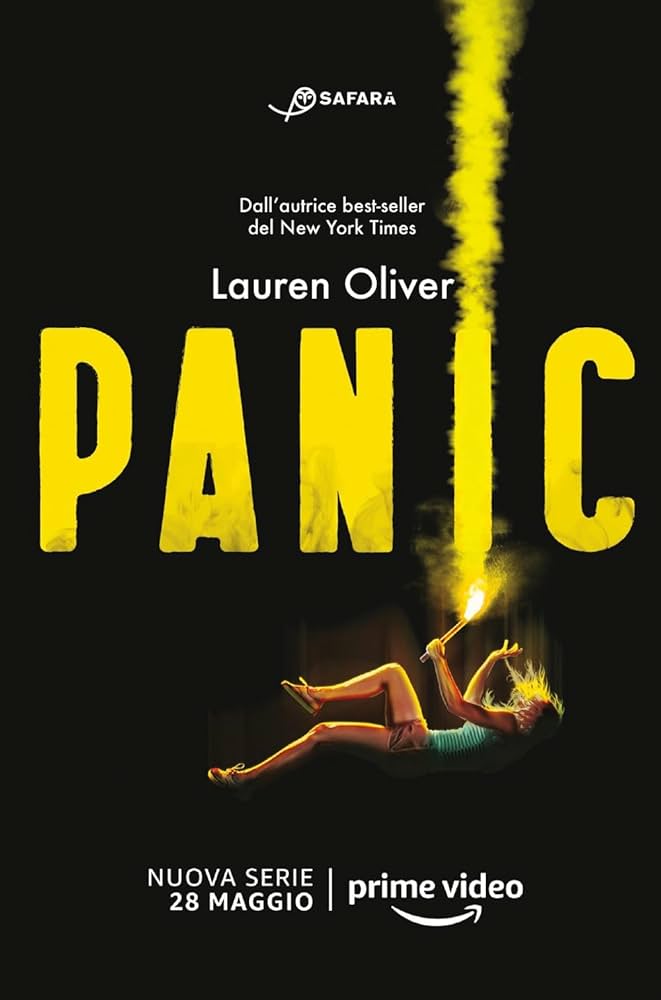The first season of Panic premieres on Amazon Prime this weekend, offering a fresh and thrilling twist on a young adult adventure. Based on Lauren Oliver’s 2014 novel, the series is set in a small Texas town where graduating seniors compete in high-stakes challenges each summer, believing it’s their sole chance to escape their circumstances. This year, however, the stakes are higher, and the game has become more perilous, forcing participants to confront their deepest fears.
For Oliver, this adaptation marks a significant milestone in her decade-long career in young adult literature. Previously, her work was adapted into the 2017 film Before I Fall, but in this case, she takes on the roles of creator, writer, and executive producer. This direct involvement has contributed to the series’ compelling and authentic atmosphere.
In anticipation of Panic‘s launch, Oliver shared insights about transforming her novel into a television series, discussing the collaborative nature of the process, key changes from the original story, and potential directions for future seasons.
Q: What inspired the original concept for Panic?
Lauren Oliver: Interestingly, while Carp was first inspired by my time in Oregon, I ultimately set the novel in upstate New York. When I moved to Texas, I discovered a unique culture that really resonated with me. I believe that being specific in storytelling often leads to a more universal connection. To me, Carp embodies places that aren’t typically represented in media—those parts of the country that reflect the majority experience.
The core idea for the book came from my personal experiences, particularly a blend of psychological themes. If you combine the characters Heather and Dodge and expand their stories over ten years, you get a reflection of my early adulthood and some of the foolish decisions I saw my sister make growing up.
Q: How was the experience of adapting Panic to television?
It was a remarkable opportunity and a significant risk, especially given that I was new to television creation. Amazon Studios trusted me with this project, which I deeply appreciate. Jen Salke, who heads the studio, took a chance on me, allowing me to write every episode. I felt a huge responsibility, but also gratitude for the chance to bring my vision to life.
Adapting the novel involved constant collaboration. The process was reminiscent of high school theater, where every person’s role is crucial. We frequently rewrote scenes as we cast actors who brought new insights to their characters. This led to fresh perspectives that reshaped the story and its characters, ensuring we captured the unique essence of Texas throughout the series.
Q: You mentioned reworking Ray’s character significantly after casting. Can you elaborate on that?
Ray’s evolution was fascinating. Initially, I joked that he lacked depth compared to other characters. However, the actor’s audition revealed layers that I hadn’t anticipated. It became clear he wasn’t a straightforward villain, which prompted me to delve into his backstory and motivations. Understanding the context behind his actions allowed us to develop a richer character arc that resonates throughout the series.
Q: What surprised you most during the adaptation process?
There’s no comparison to the experience of seeing your words come to life on screen. Writing for television involves new dynamics, including collaboration with actors and dealing with practical elements like budgets. I found it intriguing how actors interpret scenes in unexpected ways, bringing new life to the script. This creative interplay transformed my understanding of writing, creating a unique alchemy between imagination and reality.
Q: What do you hope viewers take away from the series?
I’m quite nervous about the response! My main hope is that viewers connect with the performances and find meaning in the story. There are themes of courage and faith woven throughout, and I truly wish those resonate with audiences. I might even hide out the weekend it premieres to manage my anxiety!
Q: Are there plans for future seasons?
If we’re fortunate enough, we’ll explore as many seasons as needed. There’s plenty of material to draw from, and I’m excited about the possibilities.
Q: Is there a particular comic or franchise you’d love to adapt?
I’m a huge fan of comics and am currently involved in graphic novel projects, including one my father is working on. There’s a character from a 19th-century short story that intrigues me, and I’d love to give my take on him. Additionally, I’m a big fan of Frank Miller, especially Sin City, which holds a special place in my heart.


